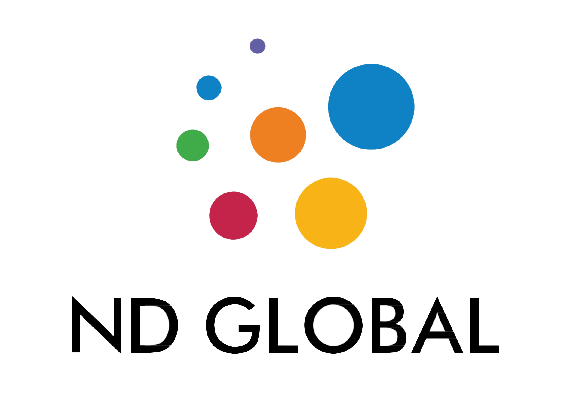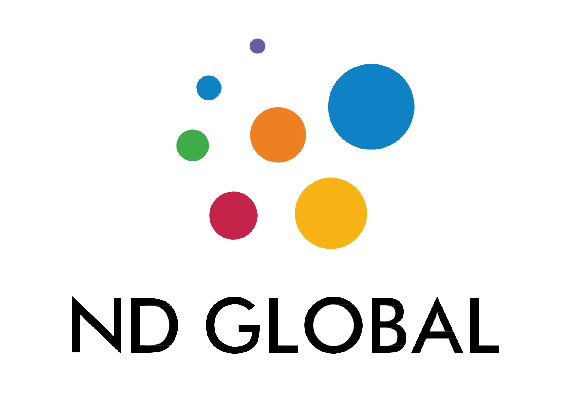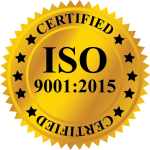In recent years, the healthcare sector has faced an unprecedented talent shortage. Driven by an aging population, rising demand for healthcare services, and burnout among healthcare professionals, this shortage challenges the ability of facilities to provide quality patient care. For healthcare providers and staffing agencies alike, navigating this shortage requires innovative solutions that can effectively bridge gaps and support a sustainable, resilient workforce. Here are some creative strategies to address the talent shortage and strengthen healthcare staffing.
1. Leverage Technology and Telehealth Services
With technological advances accelerating, telehealth has become an indispensable tool in healthcare. By enabling remote consultations, telehealth reduces the need for in-person staff and allows providers to serve patients over long distances. This is especially beneficial in rural or underserved areas where specialist care might be sparse.
Beyond telehealth, technologies like artificial intelligence (AI) and machine learning (ML) are also gaining traction. These tools can help optimize scheduling, predict staffing needs, and identify potential high-risk periods that require additional resources. By using data-driven insights, healthcare organizations can better anticipate demands and efficiently allocate their limited staff.
Key Takeaway:
Invest in telehealth platforms and use AI-based tools to streamline staffing and resource allocation, reducing dependency on on-site staff while maintaining quality patient care.
2. Optimize Recruitment and Onboarding
In a competitive labor market, streamlining recruitment and onboarding processes can be a game-changer. Candidates often have multiple job offers, so reducing the time it takes to extend an offer and onboard new employees is essential.
A few strategies to expedite recruitment include:
–Digital Platforms: Utilizing job boards, social media, and staffing platforms specific to healthcare to reach a broader audience.
–Pre-screening Candidates: Using automated systems to filter applicants based on qualifications.
–Efficient Onboarding Programs: Creating a standardized onboarding process that quickly integrates new hires into their roles.
Key Takeaway:
Simplify and expedite hiring processes to reduce the time-to-hire and retain candidates before they move on to other opportunities.
3. Offer Flexible Scheduling and Work-Life Balance Initiatives
Work-life balance is a critical factor in retaining healthcare staff, who often face long hours and emotionally taxing situations. Flexible scheduling allows healthcare professionals to take control of their work hours, reducing burnout and increasing job satisfaction.
Consider implementing:
–Self-scheduling: Allowing staff to choose shifts based on personal preferences, which can lead to higher engagement and less absenteeism.
–Job Sharing: Splitting one full-time position into two part-time roles, accommodating those who may only want to work part-time due to personal obligations.
–Floating Staff Pools: Creating a reserve of healthcare workers who can step in across various units as needed, maintaining coverage without overburdening the core team.
Key Takeaway:
Promote flexible work options that accommodate the personal needs of employees, making them more likely to stay with your organization.
4. Invest in Education and Professional Development
One of the best ways to retain healthcare talent is by investing in their growth. Many healthcare professionals are eager to upskill or specialize but may lack the resources to pursue additional certifications or degrees.
Consider offering:
–Tuition Reimbursement Programs: Assist employees in advancing their education by subsidizing their tuition costs.
–In-house Training Programs: Provide ongoing learning opportunities that allow employees to develop new skills, grow within their current roles, and pursue advancement within the organization.
–Leadership Development Programs: Encourage leadership training for staff who show potential to move into managerial roles, increasing loyalty and career satisfaction.
Key Takeaway:
Support healthcare professionals’ career growth, which not only strengthens the team’s skills but also fosters a sense of loyalty and job satisfaction.
5. Target Non-Traditional Candidates
To expand the talent pool, consider recruiting candidates from non-traditional backgrounds or those who are underrepresented in healthcare. These groups might include recent graduates, retirees looking to return part-time, or international healthcare professionals who have relocated.
Strategies include:
–Partnerships with Schools: Collaborate with educational institutions to create pipelines for new graduates who are eager to start their careers in healthcare.
–Retiree Programs: Offer flexible part-time roles to experienced healthcare workers who have retired but would consider re-entering the field.
–Diversity and Inclusion Initiatives: Actively recruit individuals from different backgrounds, providing training as necessary to bridge any skill gaps.
Key Takeaway:
Look beyond the usual candidate pool to find untapped talent that can contribute diverse perspectives and skills to the organization.
6.Engage Healthcare Staffing Agencies
Healthcare staffing agencies, especially those specializing in short-term or temporary placements, can be invaluable partners. Agencies offer access to a large pool of qualified candidates who are prepared for temporary assignments, helping to cover immediate staffing gaps.
By working with a trusted staffing partner, healthcare facilities can:
–Access Specialized Talent: Find staff with specific expertise quickly.
–Fill Short-Term Needs: Avoid the costs of recruiting full-time employees for short-term roles.
–Ensure Quality Standards: Work with staffing agencies that rigorously vet their candidates to maintain high-quality patient care.
Key Takeaway:
Partner with staffing agencies to cover immediate needs and access specialized talent without the commitment of permanent hiring.
7.Promote a Positive Workplace Culture
In times of high stress and demand, workplace culture has a powerful impact on retention. Healthcare professionals are more likely to stay in environments that promote teamwork, respect, and open communication. Implementing a positive culture means:
–Encouraging Team Support: Foster a collaborative environment where staff members support one another, reducing individual burdens.
–Recognizing Contributions: Acknowledge employees’ hard work and dedication through rewards, both formal and informal.
–Mental Health Support: Provide access to mental health resources, counseling, and wellness programs to help staff manage stress.
Key Takeaway:
Build a supportive culture that values and recognizes employees, making them more likely to remain with your organization even during challenging times.
8. Adopt Retention Bonuses and Incentive Programs
Retention bonuses and incentives can be powerful tools to keep healthcare professionals engaged. Offering financial incentives for staying with the organization can help mitigate turnover and create a more stable team.
Examples of incentive programs include:
–Retention Bonuses: Offering a one-time bonus for completing a set period of employment.
–Performance-Based Incentives: Recognizing top performers through bonuses, gift cards, or other rewards.
–Referral Programs: Offering bonuses to current employees who refer new hires that stay for a specified period.
Key Takeaway:
Use retention bonuses and incentives to encourage loyalty and reward employees for their continued dedication.
Final Thoughts
The talent shortage in healthcare is a pressing issue that requires creative, multi-faceted solutions. By implementing these strategies—leveraging technology, optimizing recruitment, promoting work-life balance, investing in professional growth, exploring non-traditional talent pools, partnering with staffing agencies, fostering a positive workplace culture, and using retention incentives—healthcare organizations can adapt to staffing challenges and build a more resilient workforce.
While no single solution can entirely resolve the talent shortage, these approaches can significantly reduce its impact, allowing healthcare providers to continue delivering quality care and supporting the well-being of their communities.
How ND Global can help – ND Global offers comprehensive solutions to address the healthcare talent shortage, ensuring that healthcare providers have access to qualified, reliable, and flexible staffing support. Here’s how ND Global can help healthcare organizations navigate this challenging scenario:
1.Streamlined Recruitment and Onboarding
ND Global specializes in a fast and efficient recruitment process. With a deep understanding of the healthcare industry’s demands, we rapidly source and screen qualified candidates, reducing time-to-hire and allowing organizations to focus on patient care. Our streamlined onboarding integrates new hires quickly, ensuring they’re ready to contribute immediately.
2. Flexible Staffing Solutions
We provide flexible staffing options, including per diem, travel, contract, and temporary placements. ND Global’s adaptable staffing models give healthcare facilities the agility to meet fluctuating demand, manage seasonal needs, and cover shifts during peak times or staffing shortages.
3.Access to a Nationwide Talent Network
ND Global’s extensive network of healthcare professionals means access to a large pool of skilled candidates, from nurses and allied health professionals to administrative and support staff. By tapping into this nationwide network, we connect healthcare facilities with the right talent quickly, minimizing downtime and ensuring continuity in care.
4.Retention and Incentive Programs
We understand the importance of retention in healthcare, so we work with facilities to develop retention programs and incentives for contract staff. Our retention strategies include performance-based incentives, referral bonuses, and personalized support for healthcare professionals, helping organizations maintain a stable workforce.
5.Cultural Fit and Quality Assurance
At ND Global, we prioritize cultural fit and quality, thoroughly vetting candidates to match each organization’s unique culture and values. Our commitment to quality assurance ensures that only highly qualified, compliant professionals are placed, supporting patient-centered care and high standards in healthcare delivery.
6.Advanced Technology for Efficient Staffing
ND Global leverages advanced technology to match healthcare facilities with the right candidates at the right time. Our AI-driven staffing platform allows us to forecast demand, streamline scheduling, and provide data insights that help facilities anticipate needs and proactively address potential gaps.
7. Continuous Support and Compliance Expertise
From initial placement to ongoing support, ND Global provides healthcare facilities with compliance expertise, regular check-ins, and prompt issue resolution. This continuous support helps ensure that staffing needs are met consistently and in line with regulatory requirements, creating a smooth staffing experience for healthcare providers.










